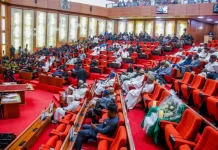The dynamics of age and relationships have been a topic of debate and discussion for generations. In recent times, the question of whether older men should marry young girls, particularly those aged 18 to 20, has sparked controversy and raised ethical considerations. This blog post aims to explore various perspectives on this sensitive issue, delving into the potential challenges and ethical implications associated with such age-gap relationships.
The age difference between older men and much younger women often raises eyebrows due to concerns about power dynamics, maturity levels, and the potential for manipulation. Critics argue that such relationships may be inherently imbalanced, as the life experiences and established positions of older partners may influence decision-making within the relationship. It is essential to scrutinize whether these concerns are valid and whether they contribute to unhealthy power dynamics in these unions.
Legal and Cultural Context
While age of consent laws vary globally, it’s crucial to consider the legal and cultural frameworks that govern relationships. Some argue that as long as both parties are legally consenting adults, there shouldn’t be restrictions on who can marry whom. However, the ethical implications of age disparities, especially when one partner is at a significantly different life stage, warrant examination beyond mere legalities.
Maturity and Life Experience
One of the central debates revolves around the maturity levels and life experiences of individuals at different ages. Advocates of age-gap relationships may argue that age does not necessarily dictate emotional or intellectual maturity, and that each person’s journey is unique. However, detractors contend that the substantial differences in life experience can lead to imbalances in decision-making, shared values, and long-term compatibility.
Communication and Consent
A critical aspect of any relationship is open and honest communication, as well as mutual consent. Supporters of age-gap relationships emphasize the importance of individual agency and the ability to make choices based on informed decisions. Nevertheless, it’s essential to explore whether young individuals entering such unions are genuinely capable of providing informed consent or if external factors, such as power dynamics, may influence their choices.
The question of whether older men should marry young girls aged 18 to 20 is a complex and multifaceted issue that elicits a range of opinions. While legal age of consent provides a framework, ethical considerations, maturity levels, and societal expectations play pivotal roles in shaping perspectives. Engaging in open and respectful dialogue on this matter is crucial, as it allows us to understand the nuances of individual relationships and societal expectations. Ultimately, fostering a deeper awareness of the complexities involved can contribute to a more informed and empathetic discourse on age-gap relationships.




















